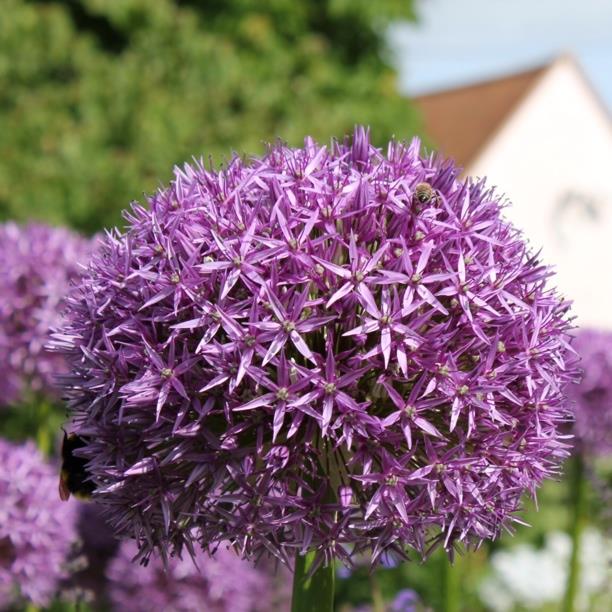
Allium 'Globemaster'
Allium 'Globemaster'
Large spherical violet flowerheads formed from a number of individual star shaped flowers. The flowerheads are the star of the show and can grow up to 20cm. The leaves do however tend to fade when the Allium is in full bloom.
Contributed by @mike.orford.5
-
Full sun
-
Occasional watering
-
Full Frost Hardy: 5F (-15°C)
-
Free draining and fertile
Common name
Allium 'Globemaster'
Latin name
Allium 'Globemaster'
type
Bulb
family
Amaryllidaceae
ph
5.0 - 7.0 Acid - Neutral
Plant & bloom calendar
-
Best time to plant
-
When the plant will bloom
full grown dimensions
 0.50 M
1.50 M
0.50 M
1.50 M
Allium 'Globemaster'
Large spherical violet flowerheads formed from a number of individual star shaped flowers. The flowerheads are the star of the show and can grow up to 20cm. The leaves do however tend to fade when the Allium is in full bloom.
Planting
From Early Autumn TO Mid Autumn
Alliums do best in well drained soil in full sun. Plant smaller types among alpine plants, the others, between low growing shrubs or herbaceous plants. Plant in mid to late autumn covering the bulbs to 3 or 4 times their own depth and leave untouched for several years until the clumps are so thick that flowering is stifled, and then divide the clumps.
Propagation by division.
From Early Spring TO Late Autumn
Species which multiply rapidly can be split in the autumn or as growth starts in the spring.. Replant both spring and autumn-divided plants immediately and keep the soil moist.
Flowering Season
From Early Summer TO Mid Summer
Most allium varieties flower from early to mid-summer.
Propagating by offsets
From Early Autumn TO Mid Autumn
Alliums very often produce off-sets - little immature bulbs at the side of the bulb. In Autumn the bulb can be lifted and the offsets gently removed and replanted.



























